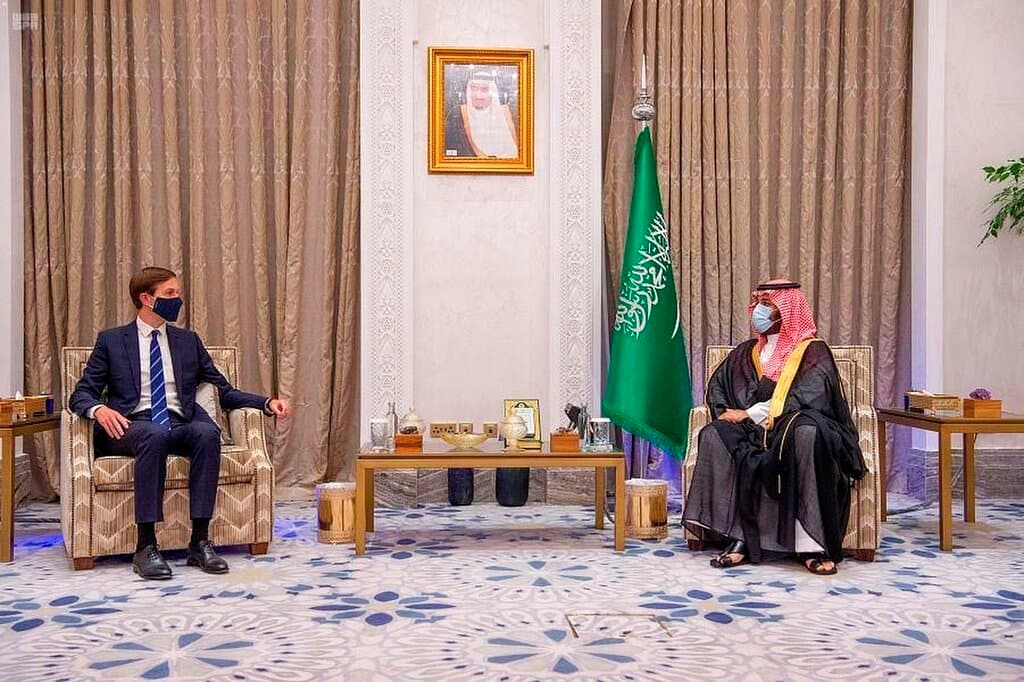Kushner’s Burden: No Good Deed Goes Unpunished
Mr. Kushner should be on the shortlist for an invitation from the Storting. Yet he now faces scrutiny by the House over the fact that he is prepared to put his — and Saudi Arabia’s — money where his mouth is.

“Blessed are the peacemakers,” says the good book, and by that measure Jared Kushner, the real estate scion and presidential son-in-law and senior adviser, has an overflowing cup, to borrow the psalmist’s parlance. An architect of the agreements between Israel and Arab countries won by President Trump and known as the Abraham Accords, Mr. Kushner should be on the shortlist for an invitation from the Storting.
Instead, Mr. Kushner now faces scrutiny by the House over the fact that he, as a private citizen, is prepared to put his — and Saudi Arabia’s — money where his mouth is. A year after leaving office, he has formed an investment fund, Affinity Partners, and won a two billion dollar infusion from Saudi Arabia’s sovereign wealth fund. Ms. Maloney and her noble comrades on the House Oversight Committee are shocked, shocked.
So Ms. Maloney, who chairs the committee, has just issued to Mr. Kushner, in an eight-page letter that was leaked to the press, an ex cathedra demand for documents. She wants “all communications” between Mr. Kushner “and Crown Prince Mohammed bin Salman or other Saudi officials from January 2017 to the present.” The idea is to see whether Mr. Kushner “improperly traded” on his government position “to obtain billions of dollars from the Saudi government.”
Ms. Maloney, who was first elected to Congress nearly 30 years ago, demands to know whether Mr. Kushner’s “personal financial interests improperly influenced U.S. foreign policy” during the administration of, as she put it, “your father-in-law.” As the New York Post notes, the letter was released on the same day news began to percolate that President Biden is planning his own visit to Riyadh to make his own peace with the House of Saud.
Can Hunter Biden be far behind? We’ve read the Wall Street Journal’s reporting on how Mr. Kushner’s pitch to Saudi investors stressed the opportunity for programs like those for which he pressed from the White House. Nor would it surprise us were it to turn out that in putting up two billion — chicken feed in the Middle East — the Kingdom is at least in part going long on a second Trump term.
A spokesman for Mr. Kushner, though, is giving no quarter. “While achieving six peace deals in the Middle East,” he insists, “Mr. Kushner fully abided by all legal and ethical guidelines both during and after his government service.” Just days ago, the United Arab Emirates agreed to a free trade pact with the Jewish state and noted that annual trade between the nations could rise to $10 billion a year from its current mark of $885 million.
Neither Ms. Maloney nor any other Democrat gives a hoot about the prospects for peace, of which the Abraham Accords have given us a glimmer. No Democrat since President Carter has made any progress on peace; they dared not move our embassy to Jerusalem even in the face of an almost unanimous vote in Congress to do so. This is a perspective from which it’s the Democrats who look corrupt in their political self-interest.
President Trump’s and Mr. Kushner’s work to achieve peace between the children of Isaac and Ishmael make Ms. Maloney’s politicking look measly as well as malicious. It is best understood as part of a broader effort to undo the good works of the previous administration. The administration’s greatest exertion is the effort to rejoin the articles of appeasement with Iran, whose ayatollahs are frightened by the Abraham Accords.
Let us hope that between President Biden’s travels to Jerusalem and Riyadh he glimpses the opportunities that could accrue if he can add Saudi Arabia to the countries President Trump has already brought into prosperous relations with Israel. We understand that Mr. Kushner’s fund, like all investment vehicles, carries some risk. Even some Saudis are skeptical. Yet his bet on peace has already yielded geopolitical returns of which few dared dream five years ago.

